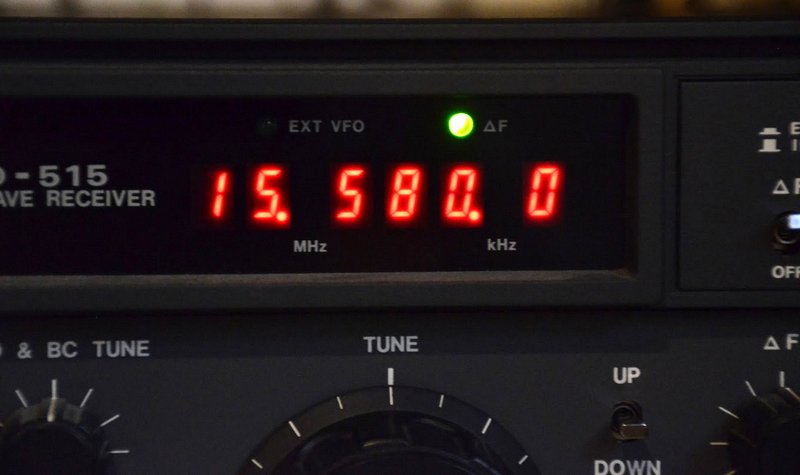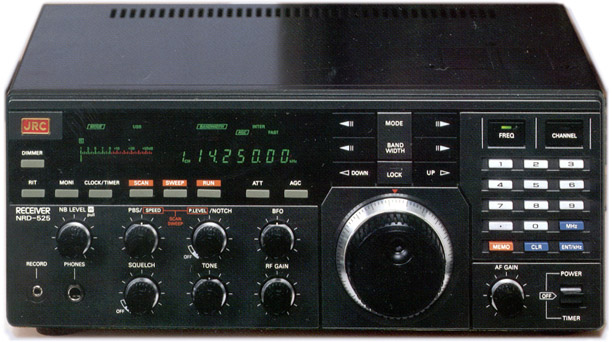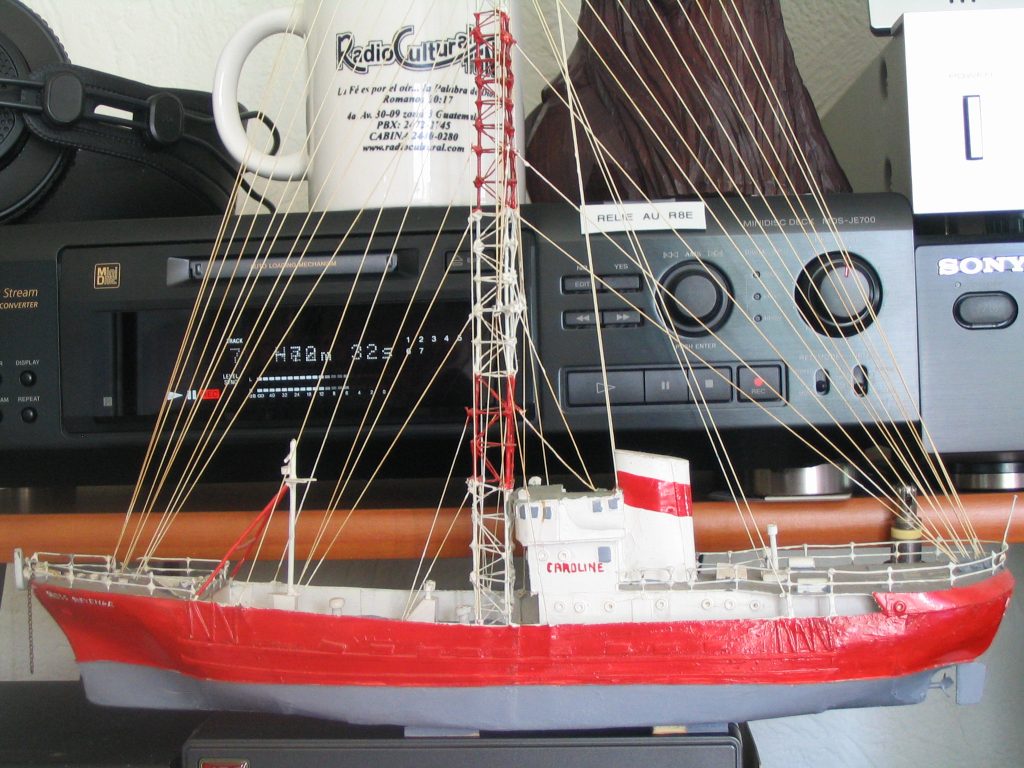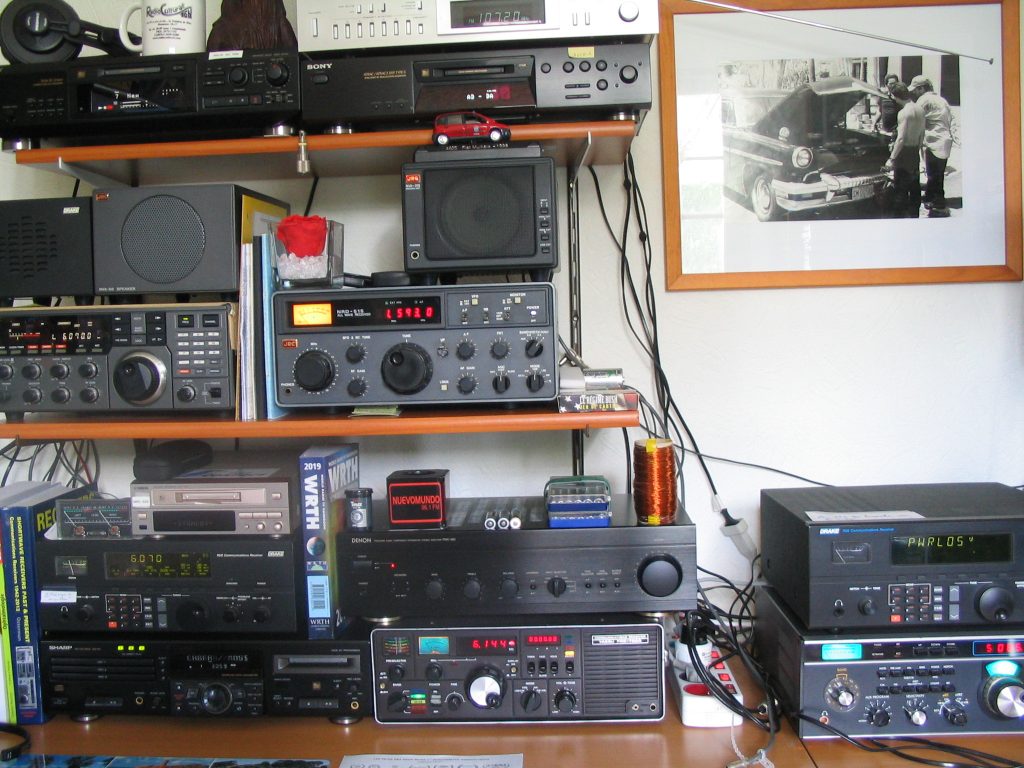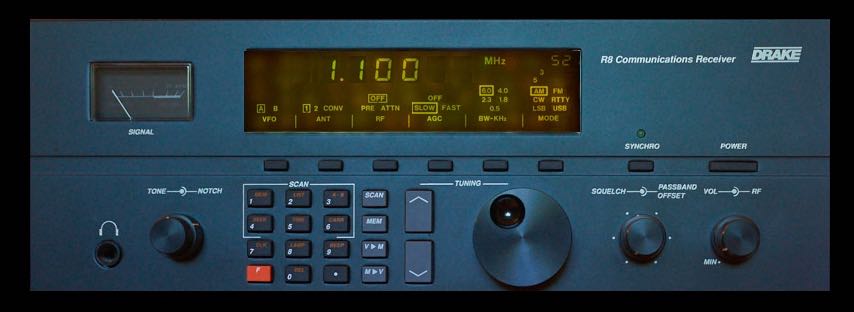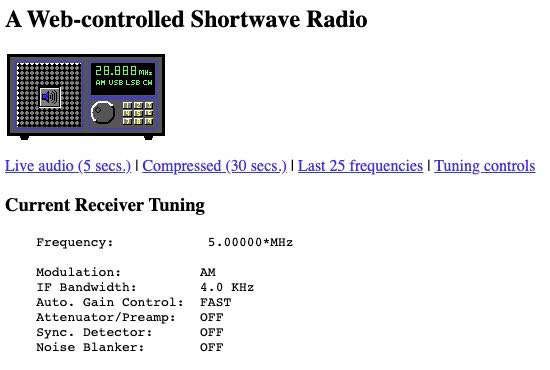Fabien’s radio story below is the latest in our series called Listener Posts, where I place all of your personal radio histories.
If you would like to add your story to the mix, simply send your story by email!
In the meantime, many thanks to Fabien who writes:
I’ve been a radio listener since the age of 14. I was an SWL and a listener of local VHF free stations too.
In the beginning, my receiver was a poor radio-cassette, with a little segment of the shortwave bands. I used it for two years.
Then, for 16th birthday I received a Philips AL 990 shortwave receiver.
It was a great receiver because the sound was clear and it was easy to identify the stations when listening with my usual headphones–even those broadcasts with very weak signals and an unidentified language. The negative of this receiver was the frequency was not easy to see/read and I was at the same display for hours.
After my school period, I worked for two years and with my savings I was able to buy a JRC NRD 525 in Swizterland, where this receiver was less expensive and easier to find than in my country of France at the time.
The good with the NRD 525 is that it was easy to tune to a frequency, easy to read the display and easy to connect the receiver to another unit for decoding RTTY signals with an old computer monitor and a small EPSON dot printer.
I was in paradise!
But the NRD 525 has a problem with its sound. Even with my best headphones, I was not able to understand the station voices when the signal was poor and the language was not mine, so it was difficult to have sufficient details to make a good reception report for sending it proudly to the logged radio station.
My solution was strange but the only one possible : I searched for rare signals with the NRD 525 and after I found them, listened to those signals with the AL 990 and my headphones.
With this solution, I was able to send a lot a reception reports and receive some beautiful QSLs from official, pirate and clandestine stations (clandestines were my favorites).
This SWL period was until 1988. In 1988 I was obliged to move from my city to a new location where it was more difficult to be a SWL. The following years, I was more a BCL (Broadcast Listener) than an SWL.
I did BCL DX until 1999, and after 1999 most of my radio listening time was only BCL easy listening, without looking for weak signals.
Because of the Internet, online SDRs, and the closing down of a lot of broadcasters, I’m less interested in contact stations directly, save from time to time. For me, the chase of weak signals was the most important part; now we can listen to a station via the Internet (online on a website or with a SDR online)…even the pirates stations.
My actual interest today is to have all of the receivers I was dreamed about when I was a teenager. In 2020, at 53 years old, I am now more a collector of receivers than a real BCL. I like all electronics, including many hifi systems/components and radio items.
I also love black and white film photography/laboratory too and I collect stickers from French radio stations.
Here are two pictures of part of my actual listening post. On one, you could see a model boat of the famous offshore radio station ” Radio Caroline “.
My favorite shortwave receivers are the Drake R8-E (European version of the R8), the BEARCAT DX-1000 and the Yaesu FRG-7.
My favorite receiver for synchronous detection reception is the SONY ICF-2001D (the European version of the ICF 2010).
To receive mediumwave stations, I prefer my JRC NRD 515 connected with an Australian active loop antenna.
For travel, I use a small Lowe HF 150.
For VHF FM-commercial band, I use my Grundig Satellit 500 and a Sony ICF 6800W.
Some of my best souvenirs/memories of SW reception are Radio La Voz de Alpha 66 (USA), Radio Venceremos (El Salvador), Radio Botswana, Radio Bardaï (Tchad or Libia), Radio RFO Tahiti, and Radio Bandeirantes (Brasil).
My regrets from the years 1981-1988 are not being able to receive the signal of Radio BHUTAN and the signal from The Faklands Islands.
I don’t like to travel outside my beloved country, but for the pleasure of visiting some radio stations, I made an effort and I traveled to Phnom Penh (Cambodia), La Habana (Cuba), San Salvador (El Salvador) and Ciudad Guatemala (Guatemala).
Truly Yours,
Fabien SERVE, in France
Thank you, Fabien, for sharing your story! You’ve added some truly classic receivers to your collection over the years! I love the Radio Caroline model too!
I encourage other SWLing Post readers and contributors to submit their own listener post! Tell us how you became interested in radio!

